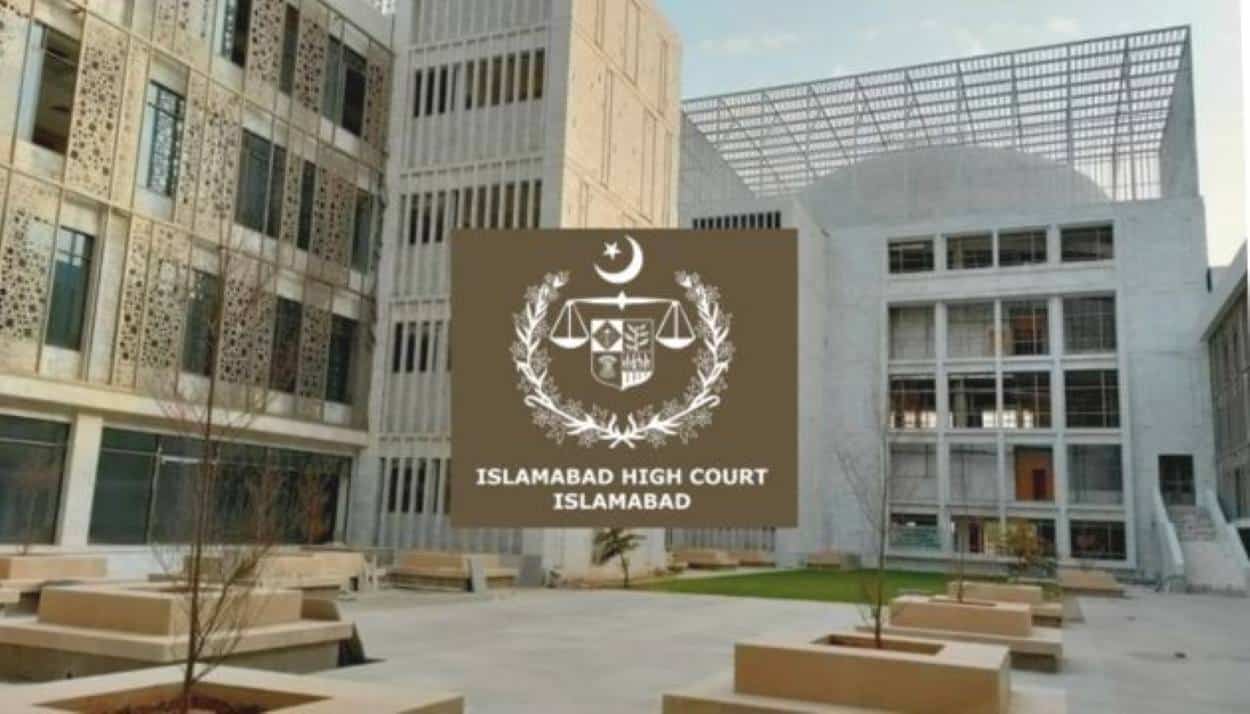The Islamabad High Court has disposed of a writ petition concerning an underage marriage. It has also made broad recommendations for legislative reforms regarding child marriages in Pakistan.
Justice Muhammad Azam Khan issued a detailed judgment in a case filed by petitioner Muhammad Riaz. He sought the return of his wife, Madiha Bibi, after her family members took her from his home. The couple married on May 30, 2025, at the Tehsil Courts Complex in Taxila, despite opposition from the woman’s family.
The case centered on a factual dispute regarding Madiha’s age. The marriage certificate (Nikahnama) recorded her age as “almost 18 years.” However, a birth certificate produced after the marriage indicated that she was born on September 15, 2009. This made her only 15 years old. The discrepancy led to a contested question of fact. It would typically require evidence and adjudication by a competent forum. In court, Madiha expressed that she married of her own free will and wished to remain with her husband. She declined to return to her parents. Justice Khan allowed her to reside with the petitioner. The ruling stated that the Islamabad Child Restraint Marriage Act of 2025 does not invalidate such marriages but instead punishes those who facilitate them.
The judgment addresses a legal contradiction in Pakistani law. Under Islamic jurisprudence, a marriage is considered valid if both parties have attained puberty. This is traditionally presumed to occur at around 15 years of age. It also requires free consent, regardless of statutory age requirements. However, according to the Islamabad Child Restraint Marriage Act of 2025, any marriage involving a person under 18 is criminalised. It carries penalties for the adult party and facilitators. Notably, the law does not explicitly declare such marriages void. Justice Khan referenced several Supreme Court and High Court precedents. These precedents establish that while child marriages constitute criminal offences, they are not rendered invalid under Islamic law.
Read: Islamabad Reports 68 Child Abductions, Low Conviction Rates in 2024
The judgment quoted a 1970 Supreme Court case, Mauj Ali. That case held that a marriage is valid under Muhammadan Law when a girl has attained puberty and married of her own free will. This entitles the husband to her custody, despite potential criminal liability under the Child Marriage Restraint Act. The court invoked the Enforcement of Shariah Act of 1991. This act affirms that Shariah is the supreme law of Pakistan and mandates that laws be interpreted consistently with Islamic principles when multiple interpretations are available. Justice Khan argued that without explicit statutory language declaring child marriages void, Islamic principles must prevail in determining their validity.
The judgment expressly disagreed with a 2022 Islamabad High Court decision in Mumtaz Bibi. That decision stated that child marriages are void ab initio, as they violate Sections 375 and 377A of the Pakistan Penal Code, which deals with rape and sexual abuse. Justice Khan contended that declaring such marriages void would create significant complications regarding the legitimacy of children born from these unions. It would also affect the recognition of spousal rights. Additionally, it would potentially expose minors to honor-based violence, family abuse, and social stigma. The court distinguished consummation within a valid marriage from the exploitative acts that rape laws aim to penalize. It emphasized that the lawful relationship and consent inherent in marriage fundamentally alter the legal analysis.
However, Justice Khan acknowledged the troubling consequences of this legal position. The court recognized that validating child marriages while criminalizing them weakens the deterrent effect of protective legislation. It risks normalizing the exploitation of minors. The judgment highlighted that early marriages often lead to forced pregnancies, poor reproductive health, and domestic violence. There is denial of education and lifelong socio-economic marginalisation. This is particularly true for girls in rural and underprivileged communities. The court emphasized that the real dilemma arises when a child, who may have attained puberty, lacks ‘rushd’ or mental maturity. This lack impairs their ability to understand or bear the responsibilities of marital life. Validating such marriages can lead to severe and irreversible consequences, including physical harm, psychological trauma, and vulnerability to abuse or exploitation.
Recognizing these irreconcilable contradictions, Justice Khan issued seven urgent recommendations to the federal government. The court directed that all Guardian Courts, Family Courts, and courts exercising jurisdiction under Section 491 must engage Child Protection Officers under the Islamabad Child Protection Act of 2018. They are to conduct statutory welfare assessments before determining the custody, care, or marital status of minors. These assessments should evaluate the attainment of puberty, the voluntariness of consent, and a medical examination to assess bone age. Additionally, they should consider socio-economic background and the character and age of the parties involved.






